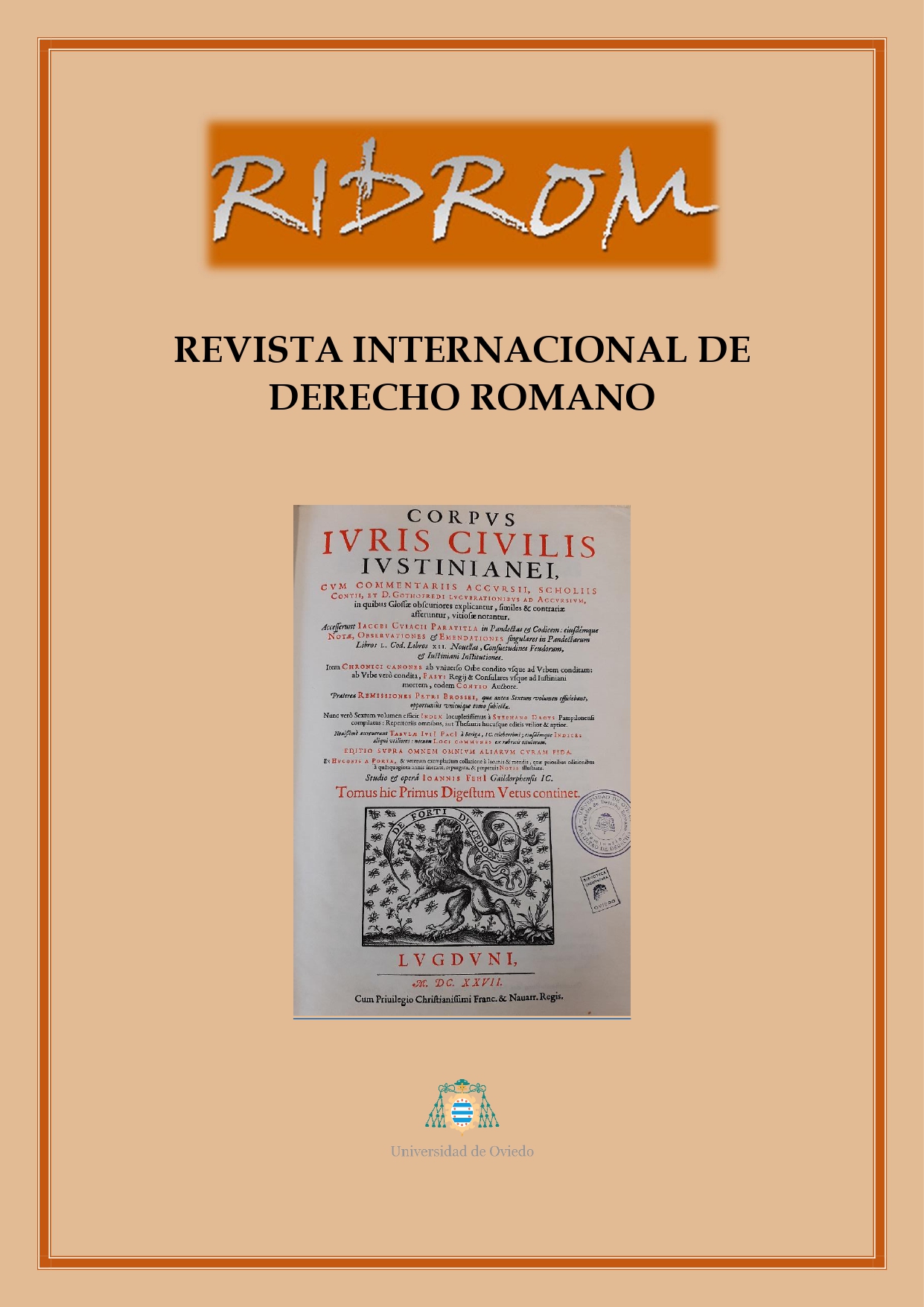Abstract
Against the general idea that in galliarum terrae always was determinant the Roman Law in France, I think that not always was so, and the influence of Roman Law was up in medieval times of the interest of french monarchs that in certain way renewed the old idea of the diferences between pars Orientis and pars Occidentis in the History of the european Jurisprudence. As a rule, in medieval times the Roman Law was reserved in the inner of cathedrals and monasteries; with the “Rénaissance” returned the interest for Roman Law like cultural idea due to the clasicism of the that time, later were tensions on the learning of Roman Law in the french Universities, and in trials. With the french revolution and inspired Napoleón by Domat and Pothier, the “code civil français” returned to the idea of a general Code based on roman jurisprudence, but from 1804 till 1954 beginned a century of progressive decadency on Roman Law in France and Europe
References
H. ANKUM, Diritto romano nel diritto della obligazioni nel nuovo codice civile olandese del 1992
C. A. CANNATA, Lineamenti di storia della giurisprudenza europea, II⁴, (Torino 1989)J.
E. CHENON, Histoire genérale du droit français public et privé des origines à 1813, I Paris 1926)
J. ELLUL, “Deux problèmes préalables”, en Annales de la Faculte de Droit et des sciences sociales et politiques de Brodeaux, I,2 (1978)
F. GARCIA GOYENA, Concordancias, motivos y comentarios del Código civil español, (Madrid 1852), reimpreso al cuidado de la Universidad de Zaragoza con una nota preliminar del Prof. Lacruz Berdejo (Zaragoza 1974)
J. IMBERT, Genèse du Code Napoleon et sa destinée, en Mélanges Gandolfi, I (Milano 2004)
R. PANERO, El Derecho romano, y su recepción en Europa, en R. PANERO (coord.), El derecho romano en la Universidad del siglo XXI, (Valencia 2006)
V. PIANO MORTARI, L’idea di codificazione nel Rinascimento, en La codificazione dall’antico al moderno, (Napoli 1997)
G. TARELLO, Storia della cultura giuridica europea. Assolutismo e codificazionedel diritto, (Bologna 1976)
A. TORRENT, Una aproximación a la legislación visigótica hispana: la “imitatio imperii”, en RIDROM 17 (2017)
A. TORRENT, El Código civil español en la secuencia comparatista de fundamentos del derecho europeo, en RIDROM 12 (2014)
A. TORRENT, Derecho público romano y sistema de fuentes, (Madrid 2008)
A. TORRENT, Fundamentos del derecho europeo, (Madrid 2007)
A. TORRENT, La recepción del derecho justinianeo en España en la Baja Edad Media (ss. XII-XVI). Un capítulo en la Historia del derecho europeo, en RIDROM 10 (2013)
A. TORRENT, La represión del “adulterium” en las leyes romano-bárbaras y particularmente en la legislación visigótica hispana, en TSDP 9 (2017)
G. WESENBERG – G. WESENER, Neuere deutsche Privatrechtsgeschichte im Rahmen der europäische Rechtsentwickung⁴, (Wien-Köln-Graz 1985). Traducción española de J. DE LOS MOZOS, Historia del derecho priva0d moderno en Alemania y en Europa, (Valladolid 1998)
F. WIEACKER, Privatrechtsgeshichte der Neuzeit² (1ª. ed. 1967, 2ª ed. neubearb. Auflage, Göttingen, 1996) 518.

This work is licensed under a Creative Commons Attribution-NonCommercial-NoDerivatives 4.0 International License.
Copyright (c) 2023 Armando Torrent


